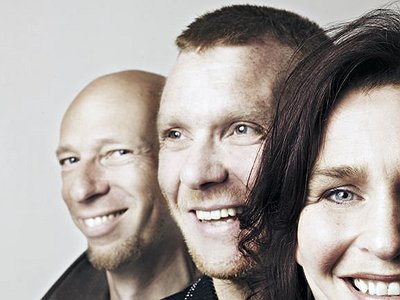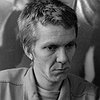Terms of engagement
Purportedly, John Stevens of the Spontaneous Music Ensemble had two basic rules to playing in his ensemble: (1) If you can't hear another musician, you're playing too loud, and (2) if the music you're producing doesn't regularly relate to what you're hearing others create, why be in the group. What's your perspective on this statement and how, more generally, does playing in a group compare to a solo situation?
Of course these are very important factors for playing together. But at the same time, you should not be afraid of letting out some steam and challenging the others in the group. You have to be both humble and arrogant.
There also lies the challenge when you are playing solo, because you have only yourself to relate to. You are the only who can challenge you. When playing together with other musicians that you like and know, you will most of the time, get more input and more to relate to. But there is also a bigger chance that the music from time to time will take another direction than what you planned. But that is the beauty of playing together.
Some people see recording improvised music as a problem. Do you?
Not really. When we record with Supersilent, we just play as if there was a concert, and we end up with lots and lots of material. But in this time of digital recording, it's important, I think, to set up some guidelines before recording. Is it allowed to edit the material or should it be direct to disk? I also think there can be good music by using the possibilities that today's studios give you, as long as you have a clear musical intention.
In the 20th century, the relationship between music and other forms of art – painting, video art and cinema most importantly - has become increasingly important. How do you see this relationship yourself and in how far, do you feel, does music relate to other senses than hearing alone?
I think all forms of art can benefit from being combined or working together with other art forms. But they should also be allowed to be on their own. It also depends on the intention and the focus you want. But most important when working with other art forms, is that all involved are aiming in the same direction. I have seen and experienced situations where the visual (lighting, video) doesn’t relate to the music at all.
In how much, do you feel, are creative decisions shaped by cultural differences – and in how much, vice versa, is the perception of sound influenced by cultural differences?
Regardless of how open minded one tries to be, there will always be some sort of cultural impact on your decisions, whether you are a performer or a listener.
Do you feel it important that an audience is able to deduct the processes and ideas behind a work purely on the basis of the music? If so, how do you make them transparent?
I think it's most important that the audience get some sort of emotional reaction from the music, whether it's in an academic way or they just like what they hear. It's really nice when you feel they become a part of what's going on on stage.
Usually, it is considered that it is the job of the artist to win over an audience. But listening is also an active, rather than just a passive process. How do you see the role of the listener in the musical communication process?
That is very important. When you play for a really good, interested audience that has come to hear music and not just drink beer, you can really feel that they are heightening the performance.
Music-sharing sites and -blogs as well as a flood of releases in general are presenting both listeners and artists with challenging questions. What's your view on the value of music today? In what way does the abundance of music change our perception of it?
It's a pity with the internet that so many people have started to see music as a free gift. So it's really a challenge finding ways of dealing with this and finding ways to offer music in a way that both the listener and the artist can benefit from. Another thing is with the internet, there was a turn backwards regarding the quality of the sound, mp3 in particular, that I find really weird. With all the technological developments and achievements in the last 10-20 years, they ended up with an audio format that is really not so good. Maybe it has something to do with the speed of the internet, but now it is possible to have audio that is better than CD quality, and thankfully some people are working on that.
I also think with the myriad of music and sounds around us all the time, there could be a challenge getting people to actually hear proper music, and also for me as an artist to stay focused on my own music. In many ways music has become kind of abused and moved to the background. But luckily, there are still those who seek the pleasure of hearing good music and want to be part of its magic!
Please recommend two artists to our readers which you feel deserve their attention.
That was hard, because there are so many I really like a lot. But I will recommend Joe Zawinul and Weather Report that was my first big musical kick and a classical composer that has been a big source of influence, Olivier Messiaen.
Read and hear more Ståle Storløkken at www.supersilence.net and www.bol.no






